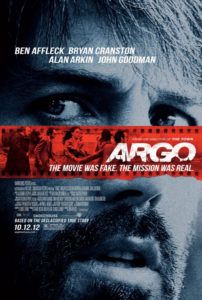Will Office Work Ever Be the Same?

| The government-mandated COVID lockdowns created, almost instantly, a nationwide experiment in remote working. Since the lockdowns ended, supermarkets, big box stores, sports arenas, and airplanes are full again. And yet, office buildings are mostly empty.
One of the half-dozen businesses in which I have an interest shut its headquarters early on and is still operating 100% remotely, with no plans to bring employees back together under one roof. The others kept their offices open, and then, when the lockdowns were lifted, encouraged their employees to return, but without issuing Elon Musk-type mandates. The soft push hasn’t worked very well. I walked through six buildings last week when I was in Baltimore. Quiet. Empty. Eerie. The workspaces were 80% to 90% unoccupied.
Is this a good or a bad thing? My partners and I have been debating this since the lockdowns began. As publishers, 95% of our employees work on keyboards. Which means that, in theory, 95% of them can do their work remotely. There are indisputable advantages to working remotely. For both employees and employers. Employees spend zero time commuting to and from the office. They can work from pretty much anywhere. And most of them have flexibility as to their hours. For employers, remote working means a significant savings. Not just in rent and/or mortgage payments, but in taxes, utility bills, and a hundred other expenses associated with having dozens or hundreds of employees in the same location. In these debates, I’ve been mostly on the “Let them work remotely” side. My argument is based on my experience. For one thing, I am more in contact with my partners, colleagues, and employees now through Zoom than I have ever been. Plus, I am saving countless dreary days each year by not flying back and forth to Baltimore and around the rest of the world. Although I can’t say with certainty that my experience is reflective of most, I have that prejudice. And so, I’ve been resisting any suggestions that we insist on employees getting back to the office five days a week. My gut tells me that one or two mandated office days per week is enough. It allows for some human contact, which is good for building personal trust, without taking on all the extra time and costs of a running a full office. It’s too early to know for sure how this remote working experiment will turn out, but there is already a fair amount of data that supports it. For example, a recently published report on vacationing Americans found that: * 60% of professionals are working more on vacations than they did prior to 2020. * 63% are taking shorter-than-usual vacations. * 37% are logging on multiple times per day during vacations, up from 19% in 2021. Another report, this one by Microsoft Teams, saw a 42% rise in chats per person after normal work hours. Yet another one showed that people are saving nearly six hours weekly by commuting less. But they’re also spending half of that saved time… doing more work. (That ties in with my own experience. I’ve been working more hours than I did before. (And this is not a feeling, but a fact. For 20 years, I’ve kept a daily log of my activities. |
| My Two-Year Prediction
I think the five-day workweek is done for office workers in most industries. I think we’ll be seeing executive employees at their desks on average three days a week. And for employees in the lower ranks – accountants, bookkeepers, customer service reps, salespeople, and data processing people – we’ll be seeing them in the office just once a week. |
| Behind Amazon’s Growing Revenues |

The government lockdown was good for Amazon. Retail shopping ceased, giving anyone that wasn’t already familiar with Amazon shopping to get used to the ease, simplicity, and value of it.
When demand began increasing exponentially two years ago, I wondered how the quality and punctuality of Amazon’s service would hold up under the extra pressure. And it held up very well. Amazon has maintained its top position in the minds of US consumers as faster, more reliable, and cheap.
This may help explain why Amazon’s digital ad revenue grew 18% year-over-year to $8.76 billion last quarter. More than analysts expected and outpacing Google and Facebook. (In fact, Facebook’s revenue shrank for the first time ever by 1.5%.)
This is a trend that is likely to continue because of several factors:
* Amazon is positioned better for shopping. Users go to Apple for social entertainment. They go to Google to find out something. But they go to Amazon to shop and buy.
* Apple’s recent privacy update, where the company gave users the right to opt out of targeted marketing, has made Apple ad space less attractive to direct-response advertisers.
* As a result of the above, Amazon’s ads are cheaper – about 70% cheaper than Google and 44% cheaper than Facebook.
Fun Fact: Amazon has a virtual product placement tool, meaning it can insert brands into its TV shows and movies in postproduction. Click here.
The Good News Part of the Bad News for Warren Buffett

Warren Buffett is considered by many to be the most successful investor of all time. Berkshire Hathaway, his conglomerate of companies and shareholdings, is so large now that it can no longer follow all of the principles that made it so successful in its early years. Still, under Warren Buffett’s and Charlie Munger’s guidance, it’s done remarkably well in recent years.
In the second quarter of this year, for example, it had nearly $10 billion in operating earnings. That was up nearly 40% from the same period last year.
“But wait,” you say. “Its stock portfolio posted a $53 billion loss!”
That’s true. And it sounds bad. But it’s not.
Since the beginning of this year, the stock market generally is down 20%. Even the S&P 500, which is built to better sustain market drops, is down 13%. Meanwhile, Berkshire Hathaway’s stock portfolio is down only 2.5%. By any sensible measure, that’s pretty darn good!
Worth Noting: One reason for the above-average performance of Berkshire Hathaway is Buffett’s appetite for insurance companies and fossil fuels. Since March, he has been adding to its stake in Occidental Petroleum, the best-performing stock in the S&P 500 this year. Click here.



